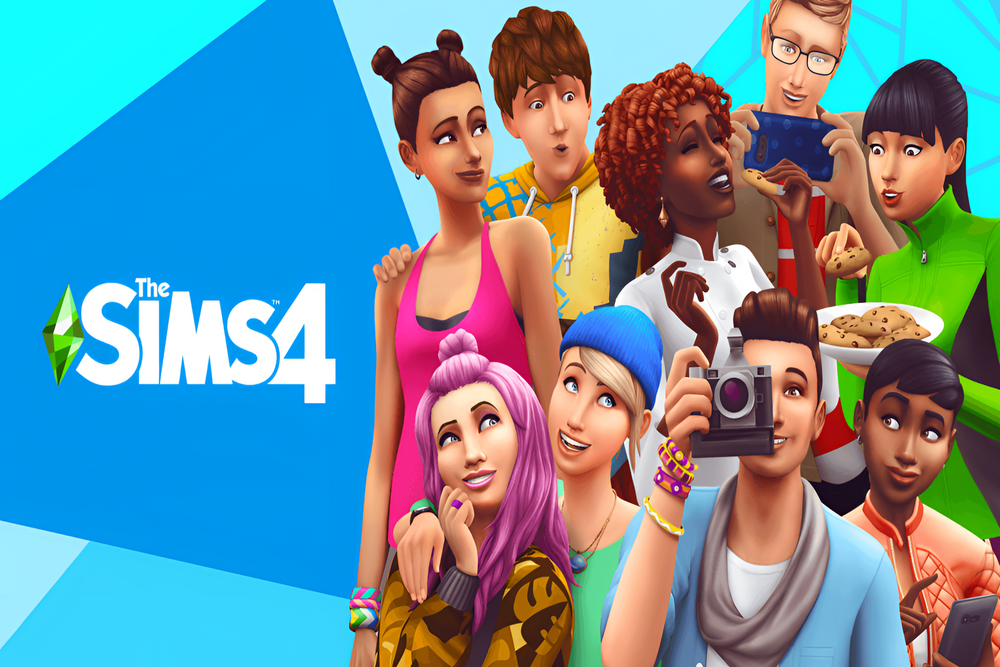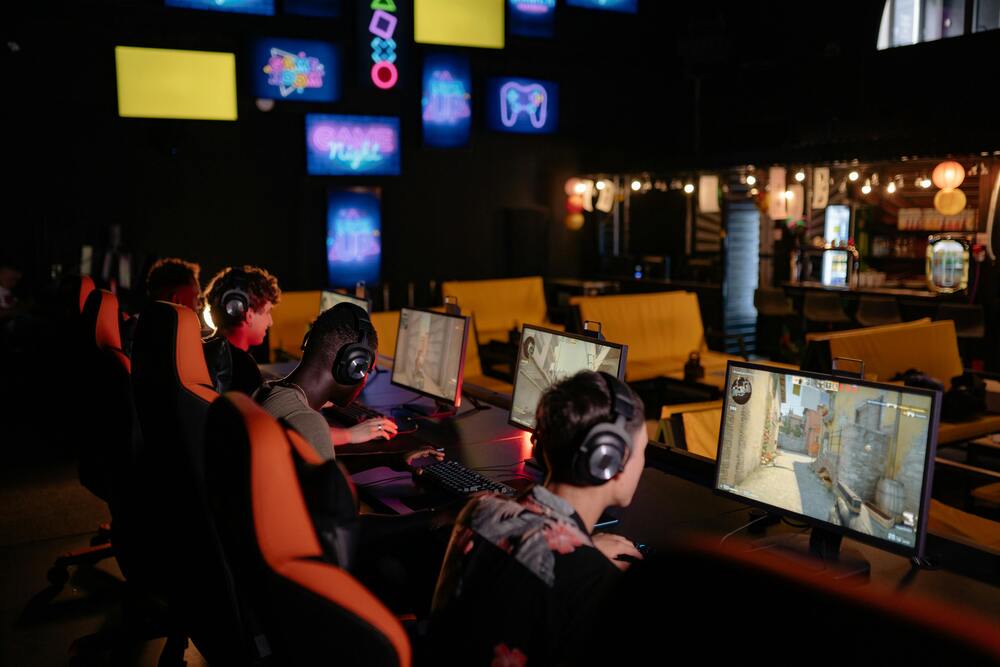
How EA Uses Game Localization to Make The Sims 4 Accessible Worldwide
Gaming has become a worldwide phenomenon of diversity, which unites individuals of any culture, origin, and language. Yet, in order for the game to become popular far from its country of origin, linguistic divides must be bridged. And this is where game localization happens—not as mere translation, but as the process of introducing games to different populations without diluting their original message, humor, and cultural references. When executed effectively, game localization can turn a regional best-seller into an international phenomenon, making it feel as though the game was produced for gamers globally.
Few others know this so well as Electronic Arts (EA), which has always made prioritizing its game localization a big part of its strategy to reach more people. One of its most popular franchises, The Sims 4, is a shining example of how careful game localization improves the overall gaming experience. Translated into 18 languages, the game makes it effortless for all players to engage with the virtual worlds of their Sims without linguistic inhibition. This accessibility guarantees that humor, social interactions, and gameplay concepts arise naturally and remain engaging, irrespective of where a player is located.
How does EA manage such large game localization, and what can be learned from it?
Game Localization Done Right:The Sims 4 Success Story
 Localization of a game is not about translation—it is about creating an experience that feels native to the gamer, irrespective of where in the world he or she resides. A game that is localized does not just replace words of one language with another; it adjusts to local cultures, does not break the immersion, and makes sure humor, idioms, and even social conventions are enjoyed and interpreted by gamers across cultures.
Localization of a game is not about translation—it is about creating an experience that feels native to the gamer, irrespective of where in the world he or she resides. A game that is localized does not just replace words of one language with another; it adjusts to local cultures, does not break the immersion, and makes sure humor, idioms, and even social conventions are enjoyed and interpreted by gamers across cultures.
EA, the publisher of the game, has elevated game localization to an art form, with the game now available to millions of players across the globe. With 18 languages available for The Sims 4, EA allows players to lose themselves in the game without ever having to consider that they're living in a foreign world. The game's localization does not stop at simple translation—it also includes menus, UI, character dialogue, and even cultural context.
HowThe Sims 4Game Localization Conquered the World
One of the major reasons The Sims 4 has been a hit game for almost ten years is EA's dedication to game localization. Instead of just translating words, EA goes the extra mile to ensure that everything in the game—menus, dialogue, even cultural commentary—feel authentic to players everywhere.
This has been a major contributor to The Sims 4's international success, making it accessible and enjoyable for millions of players all over the world.
Growing the Player Base
Game localization has enabled The Sims 4to reach players who would otherwise be limited by language barriers. With 18 languages represented, including Traditional and Simplified Chinese, Portuguese (Brazil), and Russian, EA has made the game accessible to a highly diverse audience.
By translating the game content into multiple languages, EA is able to make sure that players who do not speak English can have the same engaging and immersive experience as English-speaking players. This has greatly expandedThe Sims 4's market reach, allowing it to gain traction in gaming communities worldwide.
Increasing Player Engagement
A localized game does not merely simplify the way players learn instructions—it individualizes the entire experience. In localizing idioms, humor, and cultural nuances,The Sims 4 provides that sense of familiarity and allows players to emotionally invest themselves in the game.
This translates to extended play times, heightened emotional engagement, and a global fan base that still plays the game years after its release.
Boosting Sales and Longevity
A game localization is not simply about accessibility—it's a wise business move. By making The Sims 4 simple to play for players around the world, EA has extended the game’s lifespan and boosted its revenue. A game that is simple to play and culturally relevant has a better chance of attracting new players and motivating existing ones to invest in expansion packs and DLCs.
This has helped The Sims 4 remain a leading title in the simulation genre, making it one of EA’s top-selling franchises nearly a decade after its release.
Game localization is more than just translation—it’s the key to a truly global gaming experience. EA’s investment in high-quality localization has made The Sims 4 a game without borders, allowing players to feel at home no matter where they are in the world.
Read also: The Use of Data Analytics for Indonesian Game Localization
Key Aspects of The Sims 4’s Game Localization Strategy
Text and Audio Translation
Every written word, from the UI menus to the offbeat item descriptions within the game, is lovingly translated in order to preserve The Sims unique humor and personality. Although the Sims themselves "speak" Simlish—a fictional language designed to be universally understood through tone and expression—EA ensures that instructions, tooltips, and tutorials are region-specific so that gameplay remains intuitive for players, no matter their native language.
Cultural Adaptation
Game localization is not just about words; it's about cultural relevance. EA adapts in-game references, celebrations, and interactions to fit different regions. Holiday-themed expansion packs, for instance, might feature celebrations that align with traditions familiar to a specific audience. This makes them feel more connected to the game, allowing their Sims' life to feel like an extension of their own.
Voice-Over and Dubbing in Marketing Materials
Although The Sims relies on its globally well-liked Simlish for in-game dialogue, EA understands that region-specific voice-overs are essential for trailers, commercials, and expansion pack announcements. Not only do such localized audio features bring the game more into reach and interest for players in various markets, but they also evoke a stronger emotional reaction from target groups. By hearing familiar voices and culturally appropriate messaging, players become more immersed, so they are more invested in the game and its changing content.
Through successful game localization, EA has made The Sims 4 a global franchise, making it possible for players from different backgrounds to identify with and play the game as if it were created for them.
The game’s ability to resonate with players’ linguistic and cultural preferences is a testament to how proper localization can turn a game into a worldwide success. What, then, are some of the most useful lessons developers can learn from EA's experience, and how do they implement such game localization techniques to maximum advantage to their game?
Overcoming Game Localization Challenges: How EA Ensures The Sims 4 Feels Native Everywhere

Game localization is not always a word-for-word translation, though—it requires technical tweaks, cultural nuance, and consistency among language translations. Without the utmost care, a game might end up being fragmented, bereft of its sense of fun, or even inadvertently insulting gamers worldwide. EA has done the game localization process to perfection, ensuring that The Sims 4 remains a fluid, enjoyable experience no matter where it's played.
Adapting to Technical Constraints
Technical limitations are the largest challenge in game localization. Text expansion, for instance, is a problem when localizing from English to languages that require more space to convey the same message, such as German or Russian. Some languages, such as Japanese or Chinese, may also require additional font support. EA addresses these issues with UI optimization, dynamic text boxes, and ensuring that all the localized versions run seamlessly without affecting gameplay.
Adjusting to Cultural Sensitivities
What is humorous or tolerable in one nation will not be in another. Some references, some jokes, and even certain clothing choices in The Sims 4 have been modified to fit local sensibilities and prevent misinterpretation. A great example is expansion packs featuring holiday-themed celebrations, where seasonal traditions are tailored to each region. EA tightly collaborates with cultural specialists and linguists to make sure the game remains respectful without being so cautious that it loses its flavor and authenticity.
Sustaining Consistency Between Languages
One of the challenges in large-scale game localization is maintaining consistency in terms, names, and in-game instructions across multiple languages. Inconsistencies can confuse players and disrupt immersion. EA fights this by employing a professional localization team, working with linguists and native speakers to fine-tune translations. The use of glossaries and translation memory tools ensures uniformity, preventing key terms from changing across updates and expansions.
Listening to the Community
Game localization is not a one-time activity—it requires constant fine-tuning. EA never hesitates to take in player feedback, paying close attention to community input in order to tweak translations and alter content based on real user feedback. If certain phrases don't sound right or if cultural adaptations require altering, EA releases regular updates to alter localized content so that the game sounds as polished as possible. Through careful planning, cultural sensitivity, and a commitment to quality, EA has made game localization a signature element of The Sims 4’s international success. In solving these issues successfully, the company makes certain that gamers around the globe are able to enjoy the game as if it was created for them.
Read also: Effective Strategies in Game Translation for the Indonesian Market
Lessons for the Gaming Industry
EA's game localization strategy provides a valuable lesson to game developers everywhere: gaming no longer relies on language. A well-localized game is not just a translated one—it's a meticulously translated and adapted experience that speaks to players personally. By investing in high-quality translations, culturally appropriate adaptations, and ongoing tuning, companies can turn their games into international sensations. The success of The Sims 4 best illustrates how localization can make a game popular so it could reach more people than in its homeland. By permitting the game to be played by gamers of various cultures as if locally created for them, EA has made the game global.
Not only does localization enhance player interaction, but it also fosters a sense of belonging, making the game more immersive and enjoyable for all.
Final Thoughts: EA Game Localization Strategy Proven Success
The current age of the global game market means that game localization is no longer an afterthought but a cornerstone of success. EA's commitment to bridging language and cultural divides has been central to The Sims 4's enduring popularity in various markets worldwide for nearly a decade. Through strategic game localization, EA has illustrated how localizing a game for various territories boosts player interaction, deepens brand allegiance, and ultimately generates long-term profitability.
The Sims 4is a classic example of how well-executed localization outperforms simple translation. It entails the addition of voice-overs, marketing material, and cultural nuances to provide a natural and welcoming experience for everyone playing across the world. Though the gaming market is still growing, game developers who want to increase their client base should realize that success doesn't necessarily lie in how good the mechanics or the graphics of the game are—it depends on a game's capability to appeal to people in linguistic and cultural contexts. EA pioneered the new benchmark by demonstrating to everyone that localization is not merely a business strategy; it's the solution to tapping genuine global potential.
At Digital-Trans Asia, we recognize that game localization is not merely a matter of words—it's a matter of creating an experience that feels native to every player, no matter where they are in the world. Our veteran linguists, cultural consultants, and localization specialists toil to render your game playable as well as richly immersive to international players without losing its very essence.
From voice-over and text translation to UI localization and cultural adaptation, we help developers to seamlessly enter global markets. Need to elevate your game to go global and reach millions of new gamers? Contact us today—let’s bring your vision to life together.